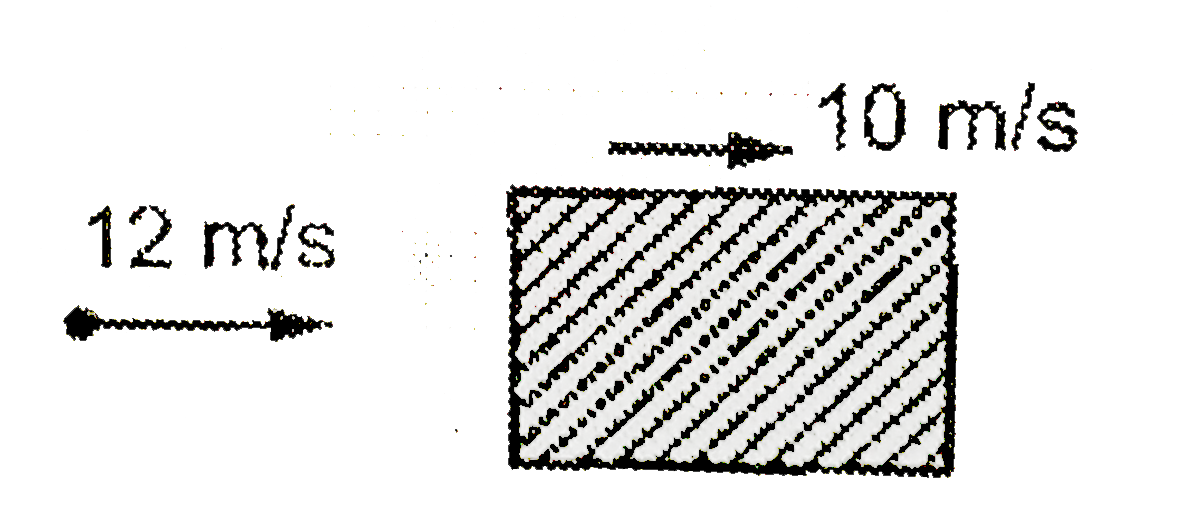Assertion : Two particles moving in the same direction do not lose all their energy in a complete inelastic collision.
Reason : Principle of conservation of momentum holds true for all kinds of collisions.
If both Assertion and Reason are true and Reason is the correct explanation of Assertion.
If both Assertion and Reason are true but Reason is not correct explanation of Assertion.
If Assertion is true but Reason is false.
If both Assertion and Reason are false.
The correct Answer is:A
If it is a completely inelastic collision then,
m1v1+m2v2=m1v+m2v,v=m1v1+m2v2m1+m2,KE=p212m1+p222m2
As p1 and p2 both simultaneously cannot be zero, therefore total KE cannot be lost.
Similar Questions
Statement -1: Two particles moving in the same direction do not lose all their energy in a completely inelastic collision.
Statement -2 : Principle of conservation of momentum holds true for all kinds of collisions.
View SolutionAssertion: There is not loss in energy in elastic collision.
Reason: Linear momentum is conserved in elastic collision.
View Solution
Knowledge Check
Statement 1 : Two particles moving in the same direction do not lose all their energy in a completely inelastic collision.
Statement 2 : The principle of conservation of momentum holds true for all kinds of collisions.AStatement-1 is True, Statement-2 is True and Statement-2 is a correct explanation for Statement-1.BStatement-1 is True, Statement-2 is True and Statement-2 is NOT a correct explanation for Statement-1.CStatement-1 is True, Statement-2 is False.DStatement-1 is False, Statement-2 is True.A completely inelastic collision is one in which the two colliding particles
AAre separated after collisionBRemain together after collisionCSplit into small fragments flying in all directionsDNone of the aboveA completely inelastic collision is one in which the two colliding particles
AAre separated after collisionBRemain together after collisionCSplit into small fragments flying in all directionsDNone of the above
Which of the following statements is false for collisions-
(1)Momentum is conserved in elastic collisions but not in inelastic collisions.
(2)Total-kinetic energy is conserved in elastic collisions but momentum is not conserved.
(3)Total kinetic energy and momentum both are conserved in all types of collisions
(4)Total kinetic energy is not conserved in inelastic collisions but momentum is conserved
View SolutionShow that total linear momentum is conserved in all collisions.
View SolutionAssertion:The principal of conservation of energy is valid for inelastic collision.
Reason: The principal of conservation of energy holds good in both elastic and inelastic collision. In case of inelastic collision kinetic energy before and after collision is not same.
View SolutionAssertion: There is not loss in energy in elastic collision.
Reason: Linear momentum is conserved in elastic collision.
View SolutionA light particle moving horizontally with a speed of 12m/s strikes a very heavy block moving in the same direction at 10m/s. The collision is one-dimensional and elastic. After the collision, the particle will

View Solution
